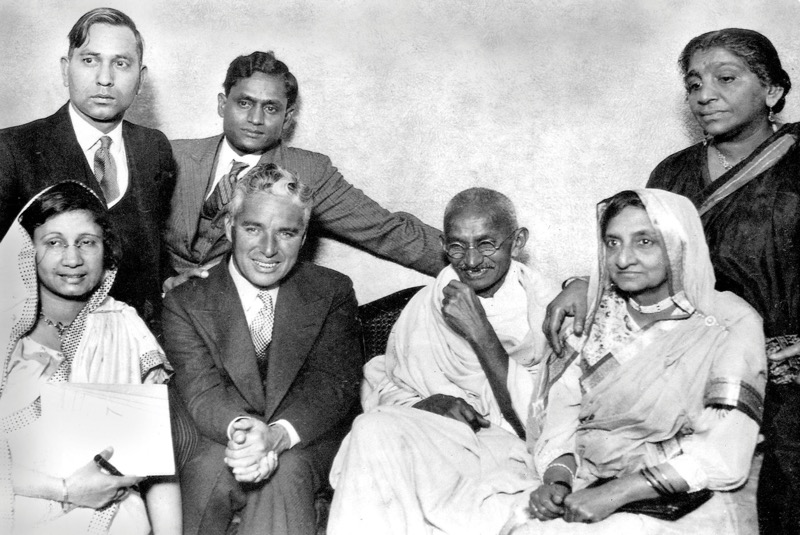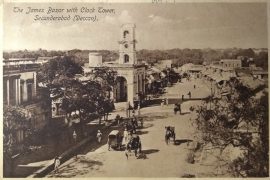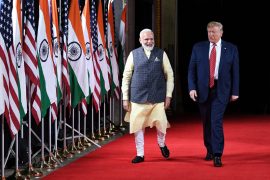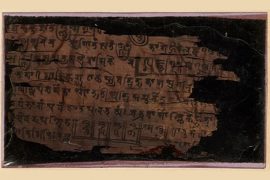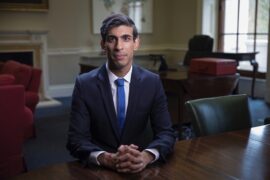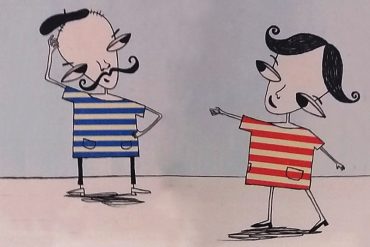Gandhi was not fond of the world of cinema, nor did he have much knowledge about it. When Gandhi travelled to London for the Round Table Conference in 1931, he saw an announcement on a London board saying, ‘Come and meet Gandhi at Madame Tussaud’s.’ Gandhi did not know what Madame Tussaud’s was. He instantly commented, ‘I wish they would send all the letters there.’
Gandhi had admirers from all over the globe, including political figures, movement leaders, writers and poets, world-famous educators, and even actors and actresses. Gauhar Jaan, a music star, reportedly offered Gandhi Rs 12,000 in cash. In a letter to his colleague Brijkrishna Chandiwala, Gandhi subsequently recalled the event. In exchange for money, she wanted Gandhi to attend and listen to her music. Gandhi received many such requests for an audience with him.
During his stay in London during the Round Table Conference in September 1931, he received one such request. Charlie Chaplin had written to him saying he was in London to promote his latest film and would like to meet him. Gandhi did not know who Mr. Chaplin was. ‘Who is this?’ he inquired. People around him had to explain who Charlie Chaplin was.
He’s an actor, you don’t want to see him, he’s simply a clown,’ someone on his team had said. ‘He’s a famous actor, Bapu,’ someone else had said. The meeting almost did not happen, according to William Rhind, an outreach worker at the Gandhi Foundation.
‘Then the person who was hosting him at Kingsley Hall in Bromley-byBow walked past and said ‘oh, but you’ve got to see Charlie Chaplin, Mr Gandhi. He’s the most famous person in the world, except for you, of course,’ said Rhind.
Gandhi had almost rejected Mr. Chaplin’s request, saying he did not have time to meet with him. However, someone who knew about Chaplin’s radicalism said, ‘He’s sympathetic to our cause!’ The workers who were with Gandhi told him that Chaplin was a hero to the world. He knew poverty as well as Gandhi did and always respected it in his works. Gandhi was pleased and agreed to meet with him. ‘In that case, I will meet with him.’ Gandhi had replied.
Charlie Chaplin, who had already been in several films, released one of his most beloved masterpieces, Citylights, at the start of the year in 1931. He had a sizable fan base all around the world.
It was a meeting of two giant figures from very different endeavours. Mohandas Karamchand Gandhi, a political icon and a patriot, a symbol of India’s freedom struggle, and Sir Charles Spencer Chaplin KBE, better known by his stage identity, Charlie Chaplin, one of the most significant on-screen idols, a brilliant comedian, and a cinematic classic. In his autobiography, Chaplin remembers going up the stairs to Gandhi’s apartment in London’s East End.
The meeting was well publicised, and Charlie Chaplin wrote that it took place in a ‘humble little house in the slum district, off the East India Dock Road…Press and Photographers packed both floors.’ Thousands showed up outside Gandhi’s humble abode and greeted the two famous men with cries, ‘good old Charlie’ and ‘good old Gandhi.’ People thundered outside as the two men met inside the building. They greeted the audience through the windows of the building.
Chaplin was anxious, so he practised his lines. After all, he was an actor. When the two notable men in history met, they discussed the use of machinery.
‘I am all for the freedom of your country and its people. But there is one thing that I don’t understand. Why do you oppose the use of machines? Don’t you think that a lot of work would come to a standstill if machines are not used?’ Mr. Chaplin asked.
In response, Gandhi explained: ‘I am not against machines but I cannot bear it when these very machines take away a man’s work from him. Today we (are) your slaves because we cannot overcome our attraction for your goods. Freedom will surely be ours if we learn to free ourselves from this attraction.’
According to Gandhi, returning to spinning cotton would not imply a rejection of all modern technology. Instead, it was a rejection of the exploitative and dominating economic and political system in which textile manufacturing had been enmeshed in colonial India.
Machinery in the past has made us dependent on England, and the only way we can rid ourselves of the dependence is to boycott all goods made by machinery. This is why we have made it the patriotic duty of every Indian to spin his own cotton and weave his own cloth.
After listening to Gandhi’s explanation, Charlie Chaplin understood the meaning behind this symbolic boycott of machinery. He saw logic and strategy in Gandhi’s vision of the Swadeshi movement. He wrote about Gandhi, saying:
I obtained a lucid object lesson in tactical manoeuvring in India’s struggle for freedom, impressed, paradoxically, by a practical, virile-minded visionary with a will of iron to hold it out.
Chaplin then attended the prayer with Gandhi, where he knelt on the carpet and witnessed Gandhi’s rituals and prayers. He joined with strict reverence as the prayers were being chanted. Chaplin later wrote:
What a paradox, I assumed, as I watched this extraordinarily reasonable man, together with his astute authorised thoughts and his profound sense of political actuality, all of which appeared to fade in a sing-song chant.
The meeting with Gandhi profoundly impacted Charlie Chaplin. Charles Chaplin Jr., Charlie Chaplin’s son, who wrote his father’s biography, My Father, Charlie Chaplin, said Chaplin admired Gandhi because he joined outcasts instead of living the comfortable life that he could have had. Chaplin often said Gandhi was one of the most brilliant men he had the opportunity to meet, but he was also ‘one of the most godlike as well.’
In 1940, Chaplin produced his iconic film The Great Dictator. It advocated a peaceful and non-violent opposition against Hitler’s aura of power. The film’s closing monologue bears Mahatma Gandhi’s influence.
-30-
Copyright©Madras Courier, All Rights Reserved. You may share using our article tools. Please don't cut articles from madrascourier.com and redistribute by email, post to the web, mobile phone or social media.Please send in your feed back and comments to [email protected]

